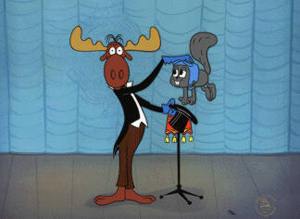
Healing & Faith a Call to Christian Witness
What We Believe and What We Do
The Gospel of Christ reaches into every aspect of our lives. It is more than what we believe, it is what we do.
Jesus said that we shall be known as His friends by our love for one another (John 13:35). This "lovingkindness" takes many forms: it can be as tangible as caring for the sick or feeding the hungry; it can be as subtle as a warm smile, a gentle hug, or a silent prayer.
By virtue of our baptism Christians are called to these works of healing and grace — and empowered to do them. (Matthew 3:11; 7:20; 25:35; John 14:26)
When it comes to being at work in the world, most of us have heard and understood our Lord's message beautifully. We serve in soup kitchens, minister to hospice patients, set up shelters for women and children, donate blood, clean up parks, and volunteer at the local animal shelter. We work for peace and justice, advocate for the frail and vulnerable, teach reading and music and dance, and donate to relief agencies.
Miracles? That's Silly!
 But when "miracles" are mentioned... we often close our ears. The idea strikes us as scary: the domain of the weird and fanatical — like handling poisonous snakes. We suspect there might be something dangerous and unholy involved in such things.
But when "miracles" are mentioned... we often close our ears. The idea strikes us as scary: the domain of the weird and fanatical — like handling poisonous snakes. We suspect there might be something dangerous and unholy involved in such things.
Yet Jesus was known to have performed many miracles. The gospels tell us that He caused the lame to walk, the blind to see, the ailing to be made well. Those who were out of their minds were restored to sanity; the dying returned to abundant life.
And He told us, "You will do all that I have done — and more" (John 14:12).
That's quite a promise. And a serious challenge for our walk of faith.

We have a long history of rationalizing away the mighty works of our Lord. The miraculous healings have been discounted as "merely symbolic," or the result of hysteria, or outright trickery. It seems we're more comfortable thinking of Jesus as a traveling magician than as Son of the Living God.
And we certainly don't want to get involved in that kind of thing, ourselves!
I wonder why that is true.
Why are we so unwilling to accept the possibility of an extraordinary, Holy In-breaking into our world? Are we afraid of being thought foolish? Are we afraid we might be wrong?
It is certainly possible that we may ask for a miracle and it won't happen.
But what if it does?
To Bless, Nurture, Heal, and Transform the World

As followers of our Lord Christ, we are called to bless, to nurture, to heal and transform the world. We are to be faithful and fearless in our prayers and our hopes; in what we do and in what we say. We are challenged — not only to believe in miracles, but to expect them. Right here. Where we are. On our street. Right this very hour.
Let us hold with strong faith to the promises of our Lord Christ and pray — with conviction and daring. Let us ask for the most incredible, miraculous things: for sight for the blind, hearing for the deaf, healing for the ailing, for right-mindedness to the disturbed. Let us confidently pray for peace, for justice, for health and hope and happiness for all humankind.
For with God all things are possible. ~ Mark 10:27; Matthew 19:26
Expect a miracle — and don't be afraid to work for it!
Begin with Prayer
Gracious Beloved, teach us to pray as our Lord Christ taught. Give us unshakable faith in You, that we may fearlessly storm the gates of heaven with our extravagant prayers for peace and health and joy. And answer us, O Holy One, so that we may know Your unwavering love for us, and abundant concern for all Creation. Amen!